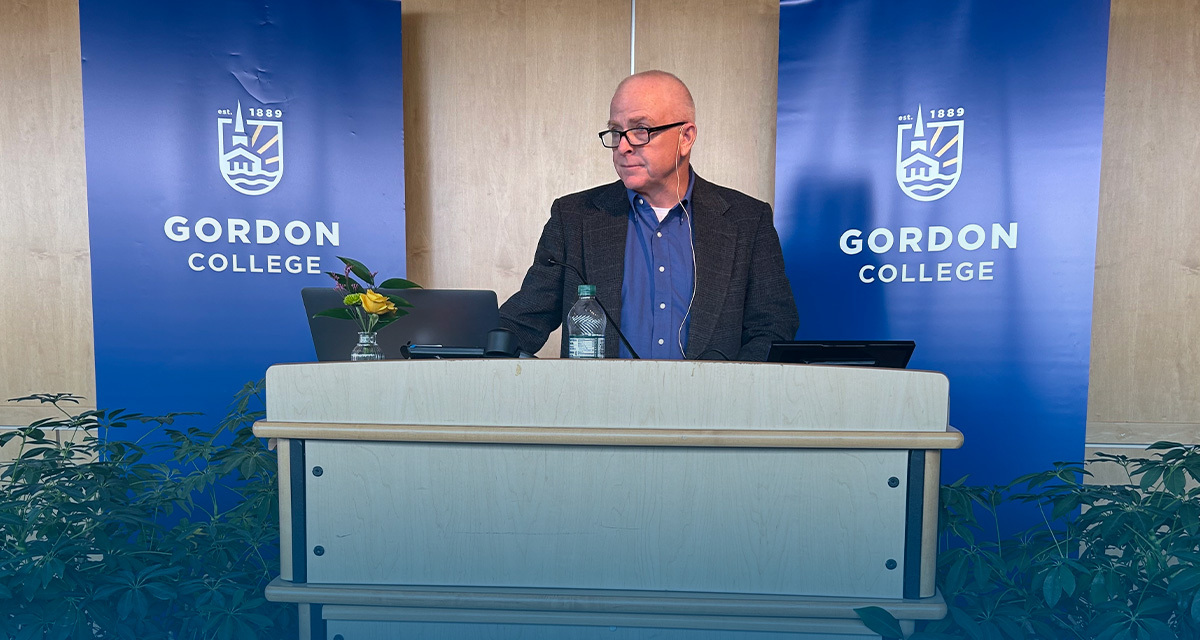Student-Led Innovation: Symposium Showcases Diversity of Thought and Learning at Gordon
On most college campuses professors lead the students in their education. But at Gordon College, on one day of the year, there are no classes, and the usual flow reverses so that students lead the learning for the day. This year’s Symposium was no different. Students led and participated in debates, lectures, discussions and even hands-on activities with their peers and campus community under the theme of “The One and the Many.”
“The question of the one and the many, unity and diversity, looms large in the history of philosophical and social thought,” said Dr. Paul Brink, who oversees Symposium, the Center for Faith and Inquiry (CFI) and the Jerusalem and Athens Forum (JAF). “It is also a central Christian teaching: the body is one but has many members.”
The 20th Jerusalem-Athens Debate
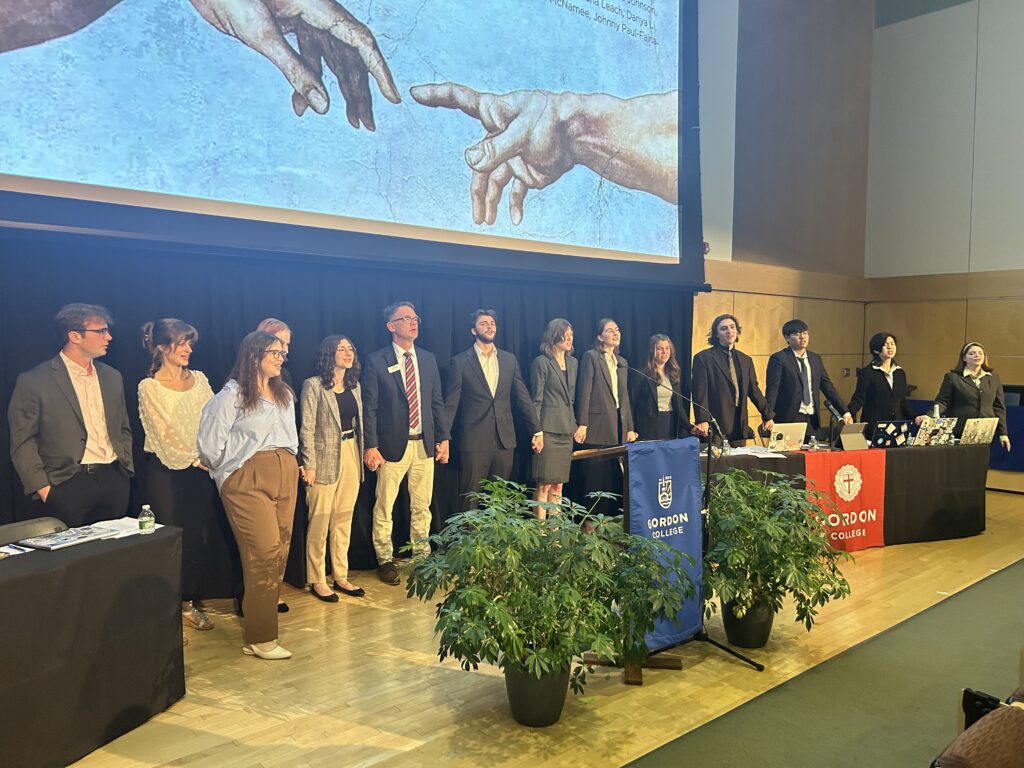
Following tradition, Symposium was preceded by the annual Jerusalem-Athens debate earlier in the week. JAF is a year long honors program that encourages students to look critically at the areas where the Church (symbolized by Jerusalem) and the academy (embodied by Athens) overlap. The debate is the culmination of the program, where students show their ability to engage deeply with a statement on a hot topic in current conversations. The students are assigned to support or refute the statement in classic Oxford debate style, regardless of their personal stance.
This year’s debate coincided with the program’s 20th anniversary, which brought dozens of JAF alumni back to campus for several reunions and private events. The guest of honor was Dr. Tal Howard, JAF founder and former director (pictured above). “This program was founded to raise the bar of the intellectual life and academics of the evangelical tradition…We’re great at service, which is wonderful, but we also should think about the life of the mind and big ideas…I hope everyone here is inspired by the debate and thinks about tough questions like these at a deeper level,” he said.
In front of a packed auditorium, JAF students tackled the statement: “The concept of human dignity cannot be supported apart from a religious or transcendent justification.” The supporting side took a philosophical approach, saying how there would be no concept of human dignity without that dignity coming from something greater than humanity.
Meanwhile the opposing team used a political defense, challenging the inclusivity of this statement for those in society who do not believe in religion or transcendence. The audience then voted based on debate performance, not opinion alignment, and the negative team won by a close 21 votes.
The Center for Faith and Inquiry’s Keynote Lecture
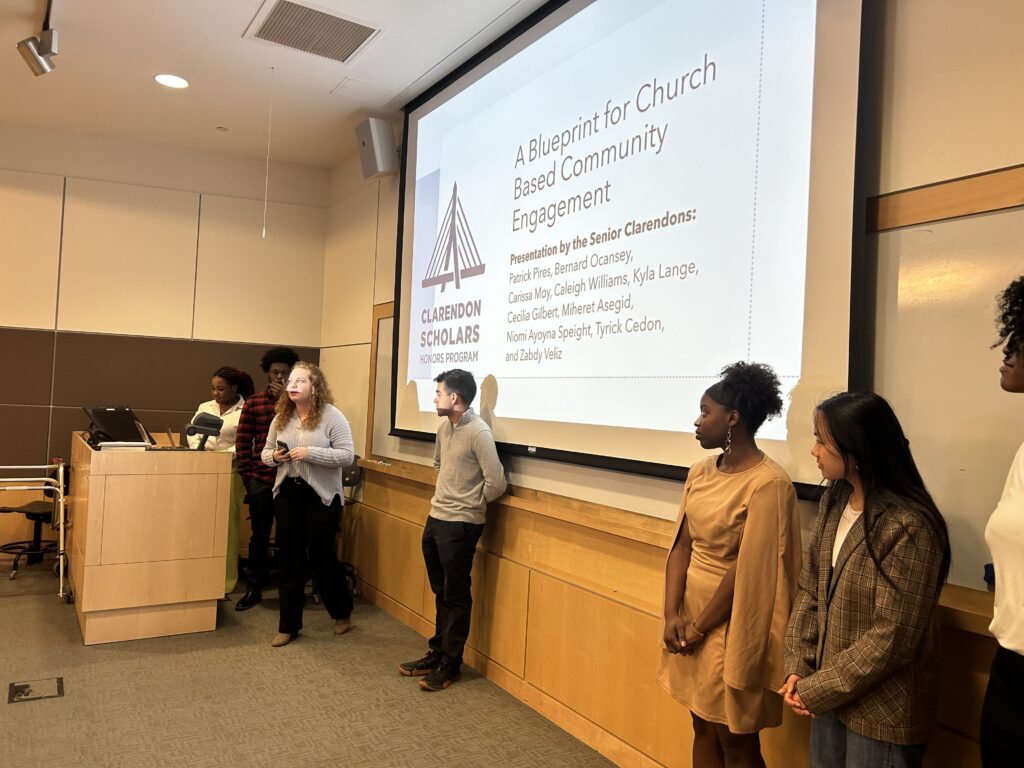
On Thursday, April 18, Symposium Day kicked off with Howard delivering the keynote lecture in a joint event with CFI, another program he led during his time at Gordon. Keeping with the day’s theme, Howard’s lecture focused on the definition of wisdom and whether wisdom is just one idea or many different things.
“What is wisdom? Where can one go to gain wisdom, as it were, about wisdom? It turns out that wisdom is a profound, multidimensional and even numinous thing, both one and many, with deep anchorage in classical thought and Scripture in the broader Christian intellectual tradition,” he said. “Recovering a rich vocabulary, both verbal and visual, about wisdom holds the promise of breathing new life into, or at least can help clarify the aims, of church relations and Christian higher education.”
Howard’s lecture went on to explore many of the different takes on wisdom from Christianity over the centuries. For example, there’s a distinction between practical wisdom or prudence for analysis and theoretical or contemplative wisdom (sophia). Many paintings, especially within the medieval Catholic tradition, saw Mary as a seat of wisdom because she was the mother of Jesus and she was willing to be a vessel of God—she recognized wisdom came from the transcendent instead of from within. The biblical book of Proverbs personifies wisdom as a woman because she is something to be continually pursued, not just found once.
“These images of wisdom offer us an embracing visual model of restoring seriousness and profundity of purpose to the task of Christian higher education. The one eternal word of wisdom is our gift, to be sure. But we the many, as individuals and as institutions, are called to…embrace our vocation, offering Christ a prominent seat at the table of learning, indeed making ourselves thrones of wisdom for him,” Howard concluded.
Many Events, One Purpose
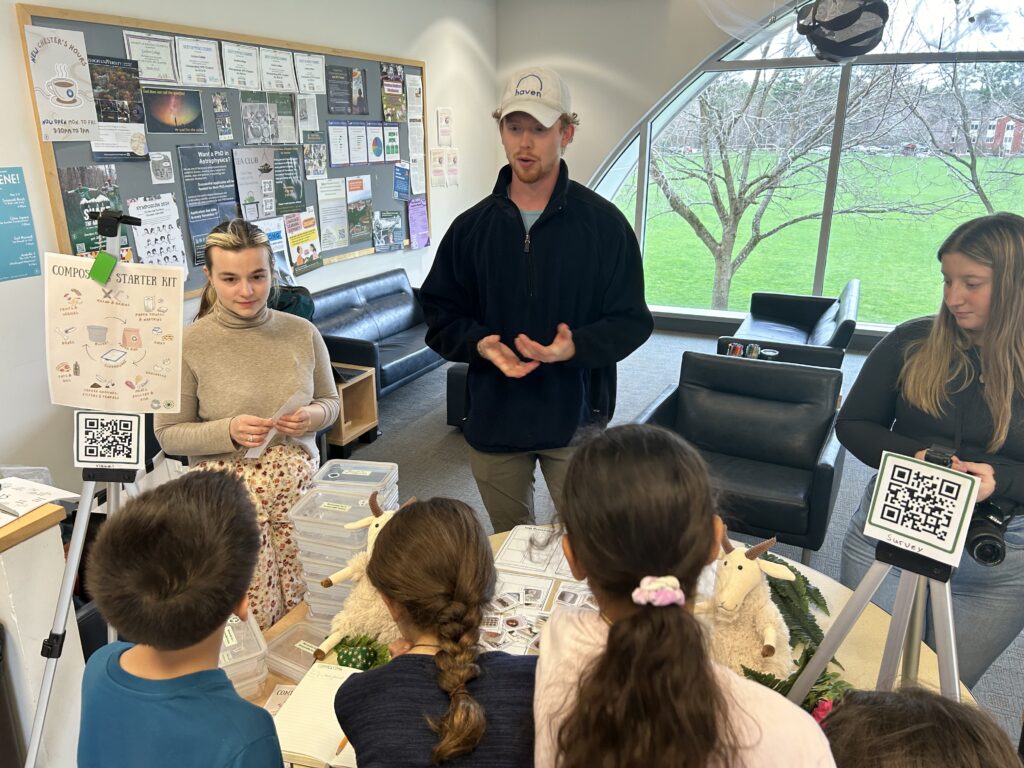
The rest of the Symposium events were completely led by students, exploring the interplay between oneness and “manyness”—as a country, in the church, at Gordon and beyond. The Clarendon Scholars program led a small group discussion workshop on addressing issues of race, reconciliation and belonging and how churches can re-imagine their approaches to serving diverse communities. A group of biology students created a game to teach their peers what can be composted or recycled to encourage students to compost in their residence halls.
Several students in the innovation and social enterprise minor gave a panel on how their different passions and majors have fueled their desires to help others, retelling tales of nonprofits and small businesses they have worked with to innovate so these businesses can be even more impactful in their communities. Two students from this year’s Civil Rights Movement Seminar gave a presentation on their trip over spring break to locations of historical significance in the American South. They encountered many new narratives about the civil rights period’s reality and wrestled with their own personal biases regarding their places as individuals in a diverse society.
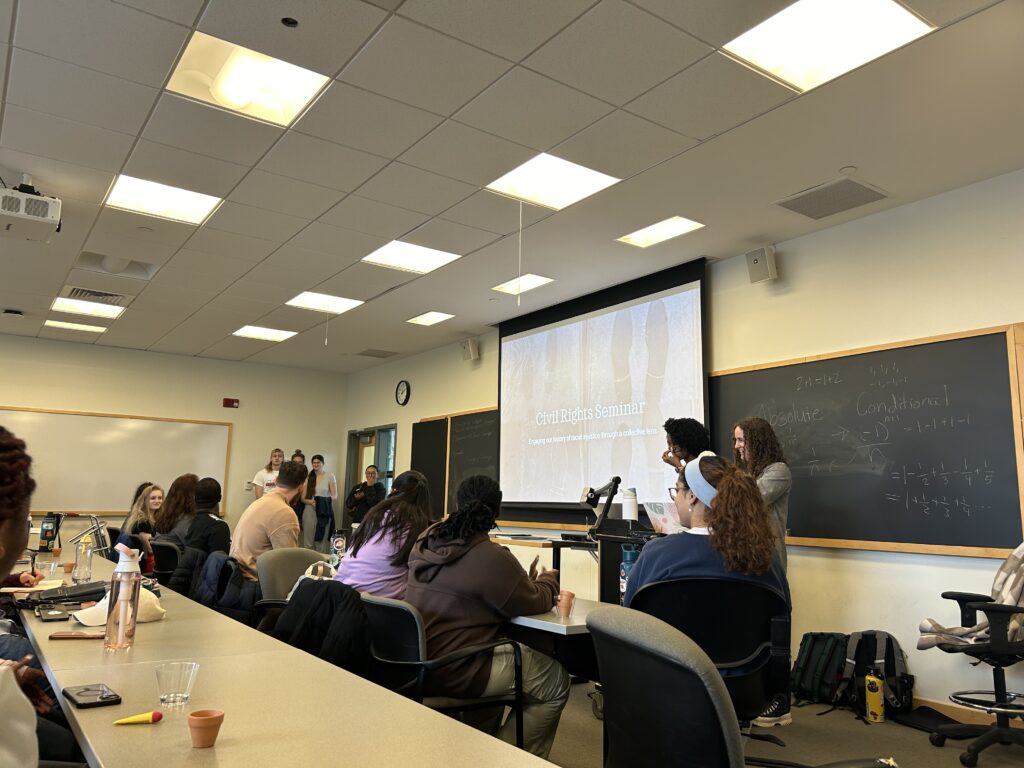
Throughout Symposium Day there was also an open art gallery in the lobby of the Ken Olsen Science Center featuring portraits of many students, staff and faculty members in different formats, including video, paintings, drawings and poetry, to symbolize the unity and diversity of the campus community. Though it was a rainy day free of classes, every event was packed.
Brink saw the day as a roaring success: “It’s encouraging to see the students sharing what they have to say on this relevant issue while learning and listening from each other. I’m already excited for what next year’s symposium will look like.”
 The Bell
The Bell